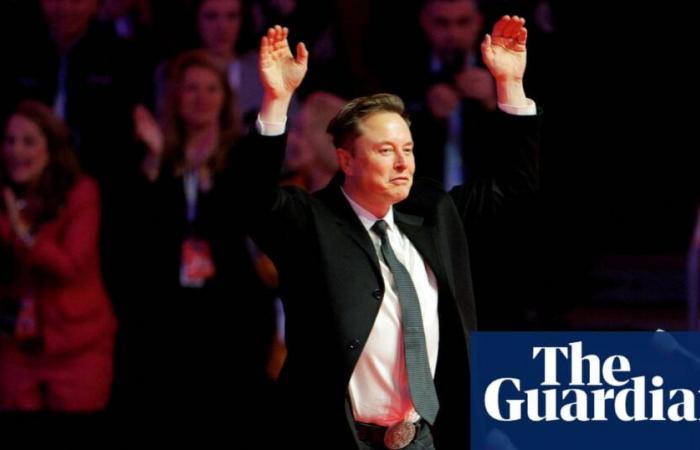Elon Musk’s “department of government efficiency” (Doge) program was sued within minutes of Donald Trump being sworn in.
The 30-page lawsuit, obtained by the Washington Post, challenges the legality of the government advisory committee Trump claims he has created, by alleging it violates federal transparency rules on disclosure, hiring and other practices.
The public interest law firm National Security Counselors says in the claim that Musk’s efficiency panel meets the bar to be considered a “federal advisory committee”, a class of legal entity regulated to ensure the government receives transparent and balanced advice, but fails to have “fairly balanced” representation, keep records of its meetings and be open to public scrutiny, as required by law.
“All meetings of Doge, including those conducted through an electronic medium, must be open to the public”, the lawsuit states.
Doge has reportedly already hired dozens of staffers who work out of Musk’s SpaceX offices in Washington DC, and often communicate using the encrypted messaging app Signal.
The tech entrepreneur Vivek Ramaswamy, who was tapped to jointly lead the group alongside Musk, is now expected to step away from it ahead of running for Ohio governor, according to CBS News.
The outlet said that Musk had “privately undercut” Ramaswamy for weeks and grown frustrated with Ramaswamy’s lack of engagement in the Doge project, which aims to cut dozens of government programs and agencies, along with thousands of jobs, in a bid for government efficiency.
“Vivek has worn out his welcome,” one person close to Trump told CBS.
-The anticipated legal challenges of the legitimacy of Doge have also been expected, including by Musk, who argues his opponents in government have used “lawfare” tactics to stymie him and his companies.
The precise nature of Musk’s efficiency project remains unknown, with insiders saying that secrecy is paramount to avoid legal efforts to derail it. Trump has said the effort will drive “drastic change”, though as an advisory committee it has no power to effect government cuts in its own right.
According to the New York Times last week, Doge executives are unpaid and expected to serve a six-month stints before returning to their jobs, and will be classified as “special government employees” under federal employment rules.
The advisory committee is unlikely to be incorporated as an organized outside entity or non-profit, the Times said, but functions more as a collective loyal to Musk and Ramaswamy.
Among those who have been interviewed as prospective workers for Doge are the Silicon Valley investors Marc Andreessen, Sequoia Capital’s Shaun Maguire, and Human Capital’s Baris Akis.
Sam Hammond, senior economist at the Foundation for American Innovation, told the Washington Post that Doge’s efforts would focus on the implementation of ideas within the executive branch and that the White House would exempt it from reporting requirements.
“Doge isn’t a federal advisory committee because Doge doesn’t really exist,” Hammond told the outlet. “Doge is a branding exercise, a shorthand for Trump’s government reform efforts.”






